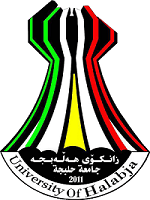Aestheticism of narration in Kurdish tales
DOI:
https://doi.org/10.32410/huj-10358Keywords:
Tale, Narration, Aestheticism, MotifAbstract
This thesis which is under the name of “aestheticism of narration in Kurdish tales “ works on and covers the manners and types of Kurdish tales, demonstrating and analyzing the principles of aestheticism in them.
Kurdish tales as a valuable and important part of Kurdish folklore, after writing down and recording them, have been mentioned from several points of views in previous writings.
A significant perspective that hasn’t been talked about as much is the aestheticism that lies in several kinds of the tales.
In this research we specifically shed light on aestheticism taking examples from all over different tales that have been collected in Kurdish literature. Our research is composed of two major parts:
In the first part, for specifying the outlook of “aestheticism of narration “in tales ,we talked about the word itself and its corresponding analogs “myths, stories “ also what makes the difference between all these genres .
Then we divided types of tales with giving instances for each which such as “fairytales, social tales, religious and parody tales” In narrative, a motif is any recurring element that has symbolic significance in a story.
Through its repetition, a motif can help produce other narrative (or literary) aspects for example as theme or mood. We spoke about (character, place, time, expression, number) motifs in the second part of our thesis.
References
زمانی کوردی
بێرتێنز، هانز(٢٠١٥) بنەماکانی تیۆری ئەدەبی، عەبدولخالق یەعقوبی، سلێمانى، دەزگای چاپ و پەخش سەردەم، چاپی یەکەم.
بەرزنجی، ئازاد (٢٠١٠)، چەند وێستگەیەکی ئەدەبی، سلیمانی، دەزگای سەردەم، چاپی دووەم.
تەقی، جەلال (٢٠٠٦) شەوانی گوێ ئاگردان(دووبەش)، سلێمانی، خانەى چاپ و بڵاوکردنەوەى چوارچرا، چاپی دووەم.
تەوحودی، کەلیموڵای (٢٠٢٠) درەختى چل ئستران، کەمال تاهیر نەژاد، ماڵی سوهرەوەردی، سلێمانی، زنجیرەکتێبی ٣٤، چاپی یەکەم.
جامباز، تاریق (١٩٨٩) چل کەزی، هەولێر ،چاپخانەى ڕۆشنبیری و لاوان، چاپی یەکەم.
جوتیار، خالید(٢٠٠٦) سەمای ئەجندان، هەولێر، کتێبفرۆشی سۆان، چاپی یەکەم.
حەسەن، محەمەد فەریق (٢٠١٠)مەملەکەتى ماسی(٣٧ حیکایەتى فۆلکلۆرییە)، هەولێر، کتێبی ئاراس، چاپی سێیەم.
حەسەن، مەولوود ئیبراهیم(٢٠٢٠) قەدەغەشکێنێ، سلێمانی، ماڵی سوهرەوەردی، زنجیرە ٣٧، چاپی یەکەم.
خۆشناو، سەرباز مەجید(٢٠١٩) ساردۆن، هەولێر، بڵاوکراوەی تەفسیر، چاپی یەکەم.
خۆشناو، هێمن عومەر (٢٠١٣) کانی خومان( هەقایەت و ئەفسانەی کوردی ناوچەى خۆشناوەتی)، سلێمانی، ئنستوتی کەلەپووری کوردی، چاپی یەکەم.
ڕەسوڵ، عیزەدین مستەفا (٢٠١٠) لێکۆڵینەوەی ئەدەبی فۆلکلۆری کوردی، هەولێر، دەزگای ئاراس، چاپی سێیەم.
سەجادی، بەختیار (٢٠٠٤) فەرهەنگی شیکارییانەى زاراوەی ئەدەبی، بەرگی یەکەم، هەولێر، دەزگای ئاراس، چاپی یەکەم.
سەجادی، عەلائەدی(١٩٥٢) مێژووی ئەدەبی کوردی، بەغداد، چاپی یەکەم.
سەجادی، عەلائەدین(٢٠١٥)، ڕشتەى مرواری (هەشت بەرگی) تاران، چاپخانەى پەنجەرە.
سەعید، محەمەد ساڵح (٢٠٠٩) داستانى هەیاسی خاس و سوڵتان مەحمووود لە دووتوێی فۆلکلۆری کوردییەوە، هەولێر، بڵاوکراوەکانی ئەکادیمیای کوردی، چاپی یەکەم.
سەلیمی، هاشم (٢٠١٣) چیرۆک و ئەفسانەى موکریان، سلێمانی، دەزگای سەردەم، چاپی کەم.
شادی، ئەحمەد (٢٠٠٥) چەپکێک فۆلکلۆری کوردی، سلێمانی، زنجیرە کتێبی ئنستیوتى کەلەپووری کورد، چاپی یەکەم.
شڵماشی، محەمەد (٢٠٠٠)خەرمان لۆغە، سوید، چاپی یەکەم.
کەسنەزانی، بوشرا (٢٠١٢) پڵۆت لە چیرۆکی کوردیدا (٢٠٠٥-١٩٩٥)، سلێمانی، ناوەندی چاپ و بڵاوکردنەوەی سلێمانی، چاپی یەکەم.
گەردی، عەزیز (٢٠١٤)سێ دەرمان(هەقایەتى کوردەواری)، هەولێر، ناوەندی ئاوێر، چاپی یەکەم.
محەمەد شڵماشی، مەجلسی ئەولیا، انتشارات کردستان، چاپی شەشەم، ١٣٩٢.
موحسین عومەر ئەحمەد، فەرهەنگی زاراوەی ئەدەبی، بەرگی یەکەم،
مودەڕیس، مەلا عەبدولکەریم(٢٠١٣)یادی مەردان، بەرگی یەکەم ودووەم، سلێمانی، چاپخانەى چوارچرا چاپی یەکەم.
میراودەلی، کەمال مەمەند (١٩٧٩) ئیستاتیکا، سلێمانی چاپخانەى زانکۆی سلیمانی، چاپی یەکەم.
مەلا مەحمودی بایزیدی، چل حیکایەت، دەزگای ئاراس، چاپی یەکەم، هەولێر ٢٠٠٤.
ئەسوەد، نەوزاد ئەحمەد (٢٠١١) فەرهەنگی زاراوەی ئەدەبی و ڕەخنەیی، سلێمانی، چاپ و بڵاوکردنەوى سلێمانی، چاپی یەکەم.
زمانی فارسی:
احمدی، بابک (١٣٩١)، چهار گزارش از تذکرةالاولیاء عطار، تهرا، نشر مرکز، چاپ پنجم.
اسکولز، رابرت (١٣٧٧) عناصر داستان، فرزانە طاهری، نشر مرکز، چاپ اول.
اسکولز، رابرت (١٣٨٣) درامردی بر ساختارگرایی در ادبیات، فرزانە طاهری، مؤسسە انتشارات اگاه، چاپ دوم.
براهنی، رضا (١٣٦٨) قصەنویسی، تهران، نشر البرز، چاپ چهارم.
پراپ، ولادیمر (١٣٨٦) ریخت شناسی قصەهای پریان، فریدون بدرەای، تهران، انتشارات توس، چاپ دوم.
خسروی، ابوتراب(١٣٨٨)، حاشیەى بر مبانی داستان، تهران، نشر ثالثت، چاپ اول.
داد، سیما (١٣٨٥) فرهنگ اصطلاحات ادبی، انتشارات مروارید، چاپ سوم.
رضوانیان، قدسیە (١٣٨٩)ساختار داستانی حکایت های عرفانی، تهران، انتشارات سخن، چاپ اول.
مقدادی، بهرام (١٣٧٨) فرهنگ اصطلاحات نقد ادبی از افلاطون تا عصر حاضر، تهران، نشر سروش، چاپ اول.
مکاریک، اریرنا ریما (١٣٨٨) دانش نامەی نظریەهای ادبی معاصر، مهران مهاجر و محمد نبوی، مؤسسە انتشارات اگاه، چاپ سوم.
میرصادقی، جمال (١٣٨٨) واژەنامە هنر داستان نویسی، کتاب مهنارز، چاپ دوم.
میرصادقی، جمال (١٣٩٢) داستان های خیالی، تهران، نشر سخ، چاپ اول.
میرصادقی، جمال (١٣٩٢) شناخت داستان، مؤسە انتشارات نگاه، چاپ اول .
پارسانسب، محمد(١٣٨٨) بنمایە؛ تعاریف گونەها کارکردها، فصل نامە نقد ادبی، س١، ش ٥، بهار.
Downloads
Published
Issue
Section
License
Copyright (c) 2021 Copyright (c)2021Bushra qadr Kaka Muhamad, Muhamad Ahmad Saeed

This work is licensed under a Creative Commons Attribution-NonCommercial-NoDerivatives 4.0 International License.
Authors who publish with this journal agree to the following terms:
- Authors retain copyright and grant the journal right of first publication with the work simultaneously licensed under a Creative Commons Attribution License [CC BY-NC-ND 4.0] that allows others to share the work with an acknowledgment of the work's authorship and initial publication in this journal.
- Authors are able to enter into separate, additional contractual arrangements for the non-exclusive distribution of the journal's published version of the work (e.g., post it to an institutional repository or publish it in a book), with an acknowledgment of its initial publication in this journal.
- Authors are permitted and encouraged to post their work online (e.g., in institutional repositories or on their website) prior to and during the submission process, as it can lead to productive exchanges, as well as earlier and greater citation of published work (See The Effect of Open Access).






